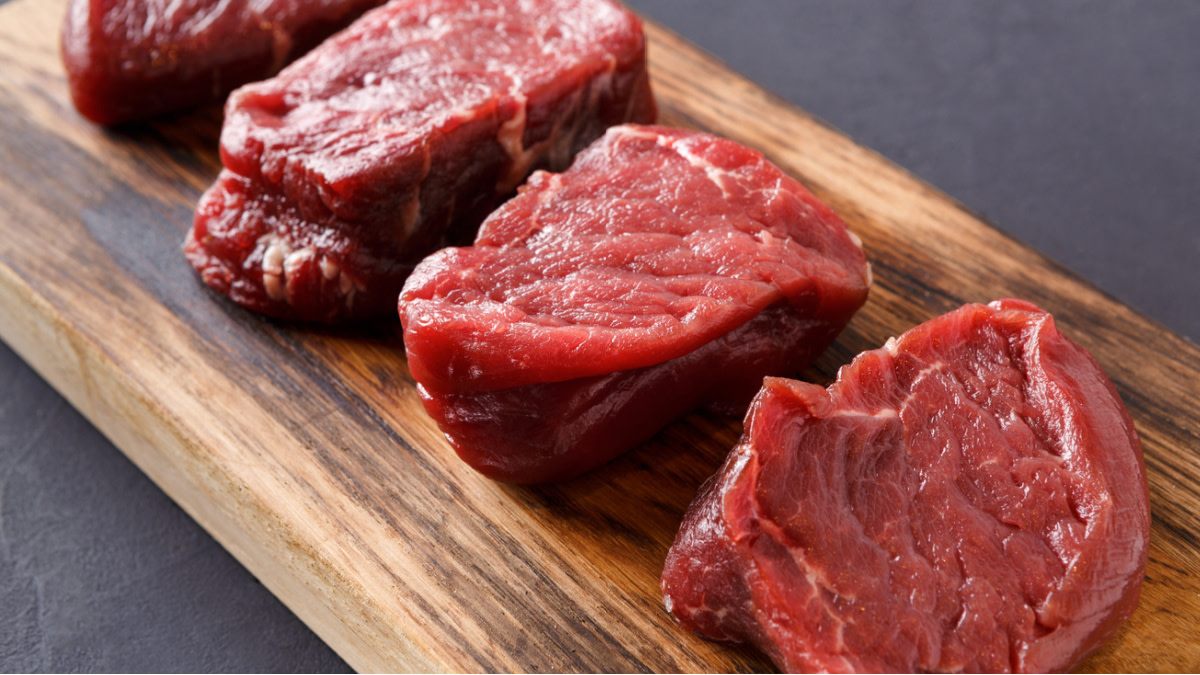
Have you ever walked down the meat aisle in the grocery store and felt completely overwhelmed by food labels? There are so many of them, and oftentimes they don’t mean much of anything and are just used for fancy marketing. Raising chickens, sheep, and pigs will teach you a thing or two about what all these words actually mean and which ones matter. So here are 15 frequently used labels and a quick explanation of what each of them means for the meat you are buying.
Pasture Raised: The USDA claims this label means that animals have "continuous free access to the outdoors for a minimum of 120 days.” Feedlot animals are not included in this definition, even though they are technically kept outside. However, many smaller-scale farms use this term to explain something entirely different—the animals are outside 365 days a year and eat grasses and legumes as a portion (or all) of their diet.
Organic: The label means that the food the animal was fed is certified organic. Although it gets used a lot by big food producers but doesn’t necessarily mean much to meat producers. This has nothing to do with how the animal is raised—animals can still be confined even if they are given organic feed. There are multiple organic certifications based on what country the operation is in.
Grass-Fed: This label generally refers to grazing ruminants (cattle, sheep, bison etc), and only addresses their diet, claiming that the animal has been 100% grass-fed (or hay-fed in the winter) its entire life after being weaned from mom. This has nothing to do with confinement, hormones, or antibiotic use. In some cases, farms can advertise grass-fed, while finishing the animals on grain for the few remaining months before the slaughter.
Grain-Fed: Similar to grass-fed, this label simply means the majority, if not all, of the animal's diet is grain. This has nothing to do with how the animal is raised.
Regeneratively/Holistically Raised: This label is not recognized by the USDA, but other newer certifications are starting to recognize such practices instead. To regeneratively raise livestock, the farmer or rancher must create a nutrient-dense product that can regenerate the soil. Animals are rotationally grazed, meaning they get fresh pasture and are outside 24/7. By rotating the animals, not only do they help build the topsoil, sequester carbon, and create a polyculture, but this also helps the animals mimic their natural grazing patterns.
Certified Humane: This label is a third-party certification that is recognized by the USDA. They have numerous standards that differ with each animal and a farm must apply to become certified. Across all species access to feed, water, shelter, and space to lay down must be available at all times, handling must be done by a trained professional, and there can’t be any use of antibiotics.
Humanely/Ethically Raised: This label is not defined by the USDA and can mean anything to any farmer. These are essentially buzzwords that are not verifiable by any certification process.
Naturally Raised: Technically the USDA is no longer verifying this label because it is confusing. This used to mean the animals were not given antibiotics or hormones and fed a vegetarian diet. It has become a buzzword and that is used at the farmer's discretion.
Animal Welfare Approved: This label refers to a third-party certification that is USDA approved. They have numerous standards that differ with each animal, and a farm must apply to become certified. Every animal must have guaranteed access to the outdoors/pasture and high-welfare farming and slaughtering practices must be used.
Non-GMO: This label simply means the food the animal was fed is non-GMO (genetically modified organism). This has nothing to do with how the animal is raised.
No Antibiotics/Hormones: This term means that the animal is not given antibiotics or hormones as a preventative health measure. However, even though some farms make this claim, they will still treat a sick animal if necessary. In some operations, livestock is fed medicated feed which includes preventative antibiotics.
(Gestational) Crate-Free: This label is often used for veal and pork and is not defined by the USDA. However, the USDA does require the definition to be beside the label. For pork, this term usually means the sows are not confined during birth or while weaning the piglets, and for veal, that the calf is not confined in any way that restricts their movement.
Cage-Free: This label is often used with poultry and means that birds can free roam and are not in a cage. With that said, the animals are often still raised inside a barn and the amount of space per bird is not included in this definition.
Free Range (Eggs): This is often misleading for a lot of people, as it can be easily confused with “pasture raised.” However, "free range" means that the hens are simply given free-choice access to the outdoors. There is no requirement for how long they must be outside, how often, or the size of the outdoor space made available to them.
Omega 3 Enriched (Eggs): This term is used for laying hens, in which the hens are fed an additional source of Omega-3 fatty acids like flax, algae, or fish oil. This is often referring to hens that are not pasture raised and are raised inside a barn. If they were pasture raised, they would be able to get these additional nutrients from green matter.
The Bottom Line That’s a lot to digest. Although this info is good to know, don't let it worry you because labels aren’t always everything. The best option to know what you are buying is to actually see how the livestock is being raised. That’s why I recommend supporting smaller-scale farms that strive for transparency. Try to make your meat purchases through a CSA (community-supported agriculture) at a farmers markets, buy a whole or half animal directly from the source, or even just take a farm tour where you can see their practices.
Creating a relationship with the person who grows your food will give you knowledge on what the animal was fed, how it was raised, and how it will be handled and slaughtered. Don't be afraid to ask questions—you can’t get these answers at the grocery store.
As Joel Salatin once said, "You know your doctor, your dentist, your banker. Why don’t you know your farmer?" As a farmer that practices holistic and regenerative practices, I believe that regeneratively raised livestock practices are better for farmers, livestock, and the planet. If you are shopping in the grocery store, I recommend looking for these labels: regeneratively raised, pasture raised, organic or non-GMO, hormone/antibiotic free, and animal welfare approved. Unlike most labels, they carry some meaning.





